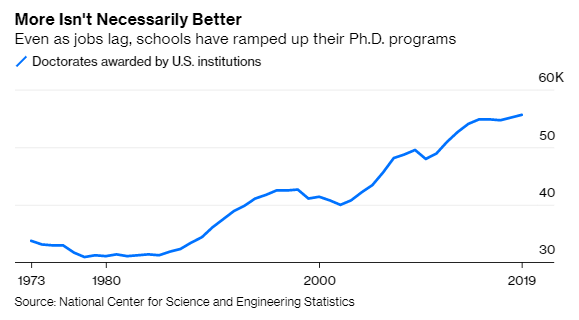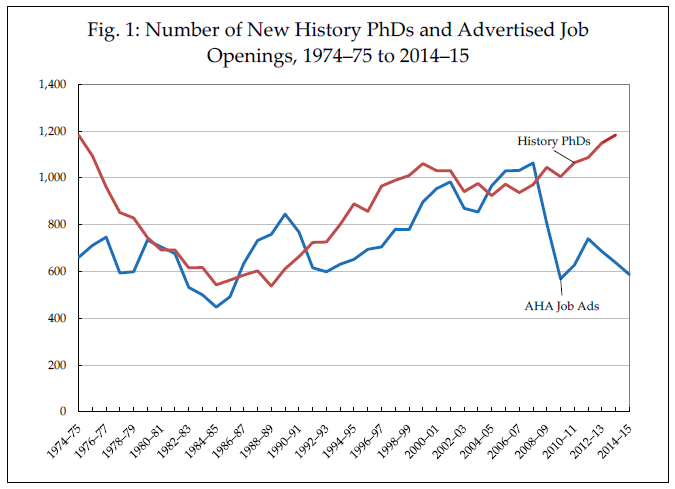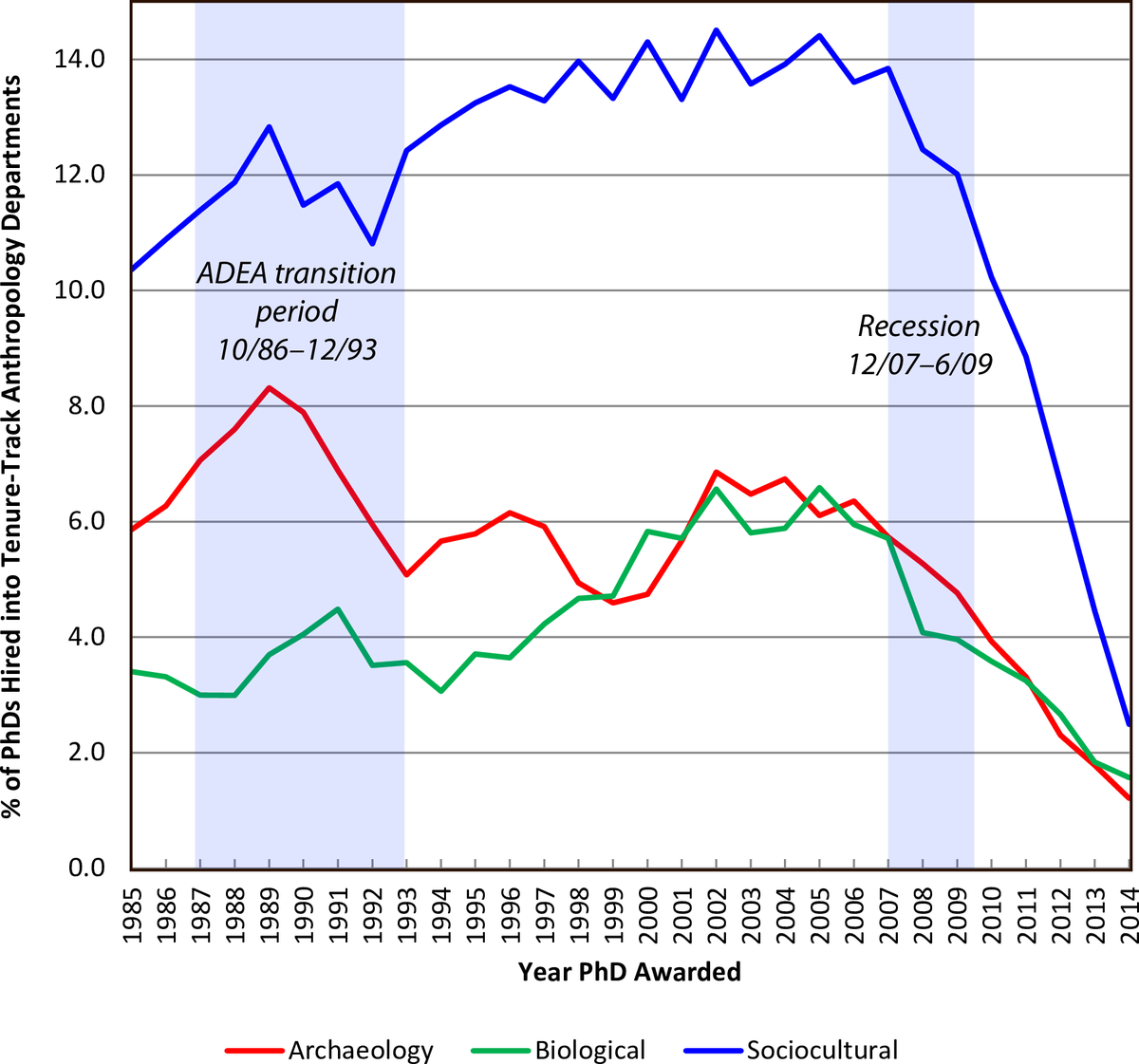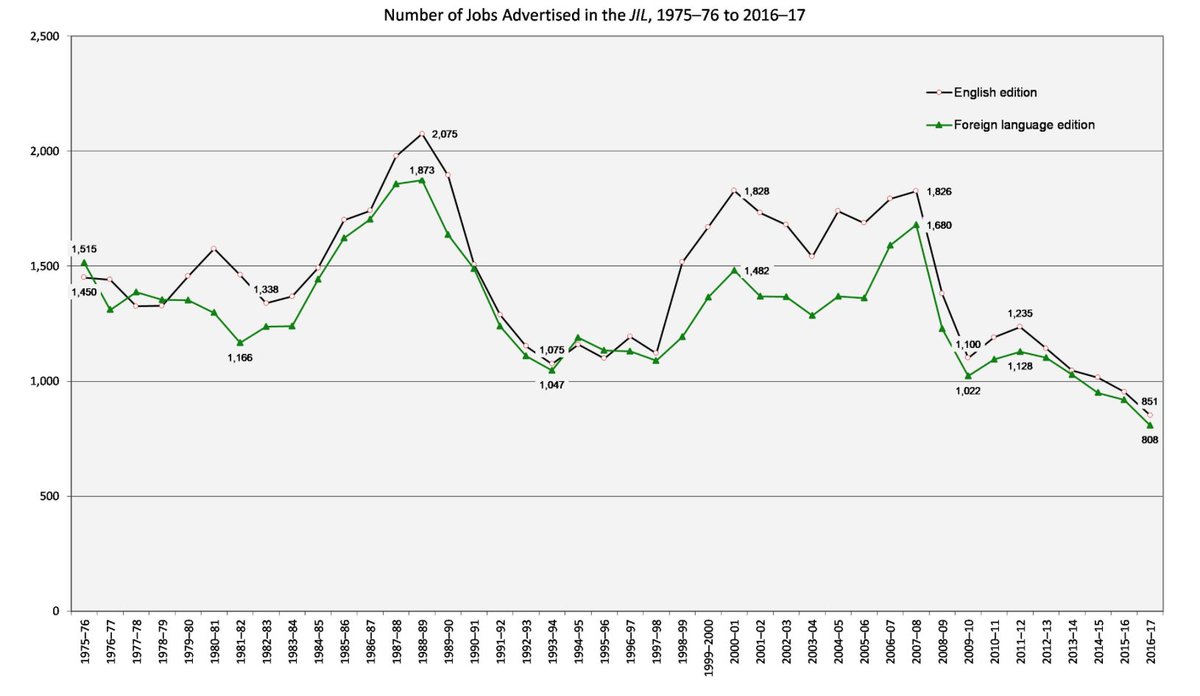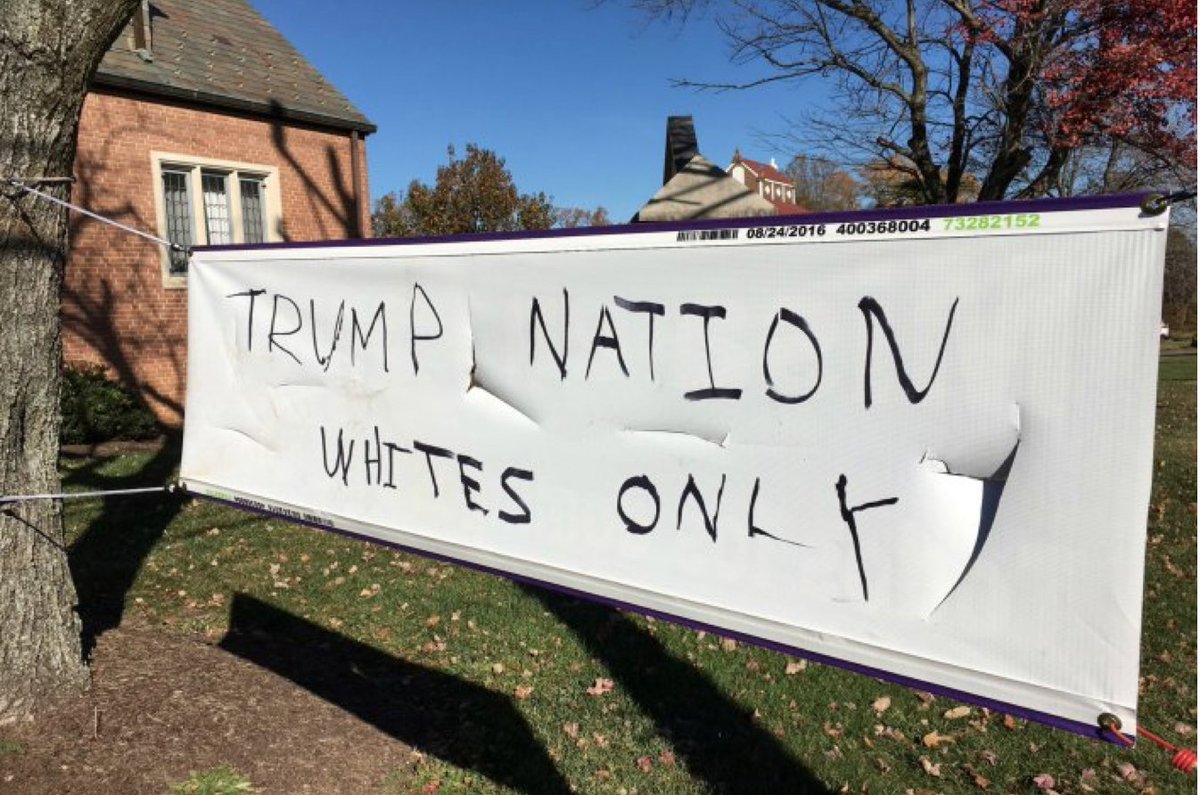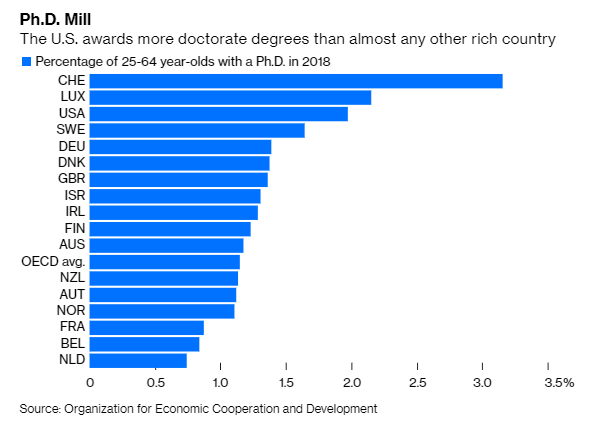
1/Today in @bopinion, I discuss why America has been producing too many PhDs in recent years, and what we need to do to solve the

https://t.co/M8hhoap12d
Professors have tenure.
That means there are just going to be fewer new tenure-track jobs than before. Everyone in academia already knows this well.
https://t.co/nsbwhqaoYp
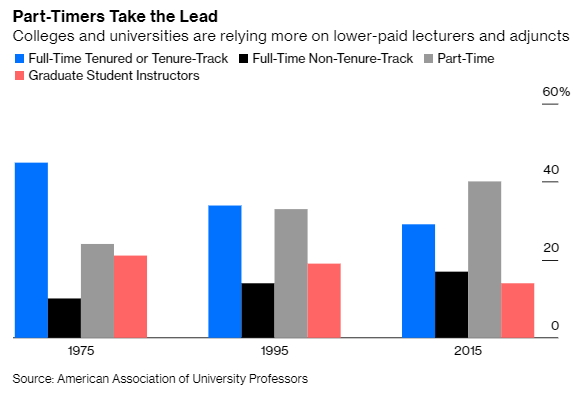
https://t.co/z9GjZkmAhB
This will lead to underemployment and resentment.
https://t.co/HEp0Hf5Egs
1/Alright, so folks wanted me to expand on this idea, so here we go. Elite disaffection and the return of the American Left.
— We need 3 million vaccinations a day \U0001f407 (@Noahpinion) September 15, 2018
As you may have noticed, we're seeing an upsurge in young Americans who reject capitalism. Why? https://t.co/oSfupxLLiW https://t.co/rXiXewB2hV
https://t.co/23VstFoiAd
https://t.co/Mmuovpg3u5
For STEM PhDs, we can have the government employ more. A massive expansion of federal research funding is in the works. We should pass @RoKhanna's Endless Frontier Act.
https://t.co/4Nd91Fcejr
We need to cut back on production.
This will be painful but necessary.
https://t.co/iK92UoN6Zd
(end)
https://t.co/o36CkgHRlU
More from We need 3 million vaccinations a day 🐇
"She now finds herself in the uppermost echelons of the culture industries, where woke liberalism is de rigueur and departures from it are stigmatized." @reihan on Taylor Swift's swing towards politics: https://t.co/cKW4LoY9IV
— The Atlantic (@TheAtlantic) October 11, 2018
Basically we have a whole bunch of ways of saying "You can't possibly believe that!!". Which helps us avoid the terrifying fact that yes, people generally do believe it.
Of course, "believe" doesn't mean what it means in econ class. It means that people get a warm feeling from asserting something, even if they don't know what it means. "God is omnipotent", etc.
A lot of times we believe extreme things, simply because asserting those things all together in a group gives us a warm feeling of having an army on our side.
It's not competitive wokeness. It's COOPERATIVE wokeness.
"Virtue signaling" isn't fake or pretend. It's real.
"Virtue", when it comes right down to it, means membership on a team.
Sometimes, to prove you're on a team, it helps to say something people on the other team could never bring themselves to say.
\u2018The Simpsons\u2019 producer confirms Apu is being written out of show following controversy https://t.co/lKzFCe1wFa pic.twitter.com/s34IUDUtqs
— NME (@NME) October 26, 2018
2/Apu's presence in Springfield represented a basic reality of America in the late 20th and early 21st century: the presence of nonwhite immigrants.
3/As Tomas Jimenez writes in "The Other Side of Assimilation", for my generation, immigrants from India, China, Mexico, and many other countries aren't strange or foreign. On the contrary, they're a
4/But that America I grew up with is fundamentally ephemeral. The kids of immigrants don't retain their parents' culture. They merge into the local culture (and, as Jimenez documents, the local culture changes to reflect their influence).
5/Simpsons character don't change. But real people, and real communities, do. So a character who once represented the diversity that immigrants brought to American towns now represents a stereotype of Indian-Americans as "permanent foreigners".
This explains why immigration is now at the center of partisan conflict.
Why did California turn Blue?
— Sen. Eric Brakey (@SenatorBrakey) October 28, 2018
Why is Texas turning Blue?
The left has failed at selling socialism to the American people for decades. We have rejected it.
Their new strategy is mass importation of new voters to transform our political culture.
Of course, the belief in ethnic bloc voting becomes a self-fulfilling prophecy.
When a slight Dem tilt among Hispanics and Asians caused the GOP to turn against them, Hispanics and Asians shifted more toward the Dems. Etc. etc. A self-reinforcing cycle.
Bush's 2006 amnesty attempt, and the 2013 intra-GOP fight over immigration reform, were two moments when the GOP could have turned back to the approach of Reagan, and courted Hispanics and Asians.
But they decided against this, and...here we are.
What will disrupt this bad equilibrium, and save American politics from being an eternal race war?
Either:
A) More white voters will grow disgusted with the GOP approach and defect, or
B) The GOP will find some non-immigration-related issues to attract more Hispanics and Asians.
As long as both parties see elections in terms of racial bloc voting - where the only way to win is to increase turnout among your own racial blocs or suppress turnout by the other party's racial blocs - American politics will not improve, and the country will decline.
(end)
More from Society
You May Also Like
Do Share the above tweet 👆
These are going to be very simple yet effective pure price action based scanners, no fancy indicators nothing - hope you liked it.
https://t.co/JU0MJIbpRV
52 Week High
One of the classic scanners very you will get strong stocks to Bet on.
https://t.co/V69th0jwBr
Hourly Breakout
This scanner will give you short term bet breakouts like hourly or 2Hr breakout
Volume shocker
Volume spurt in a stock with massive X times

